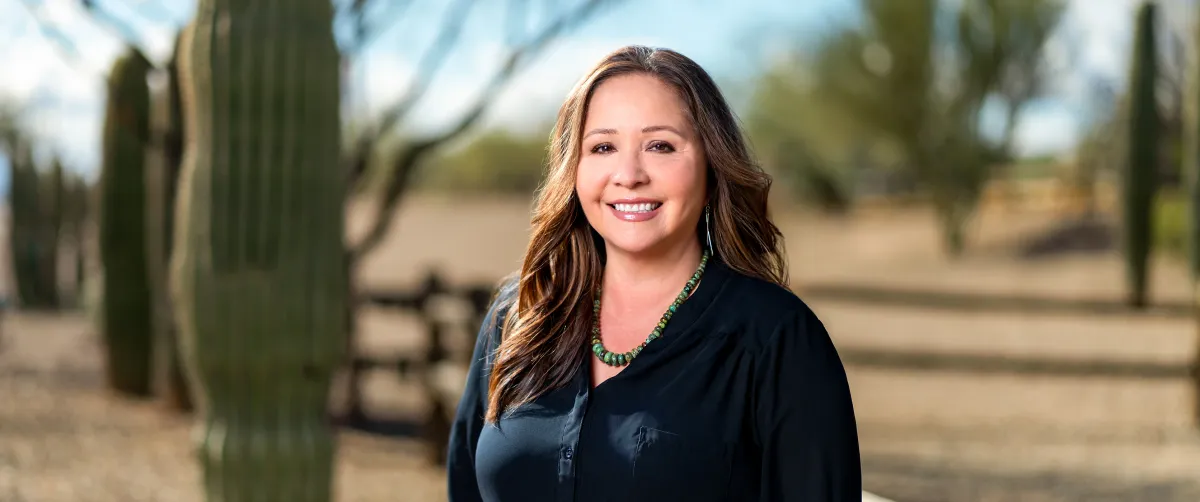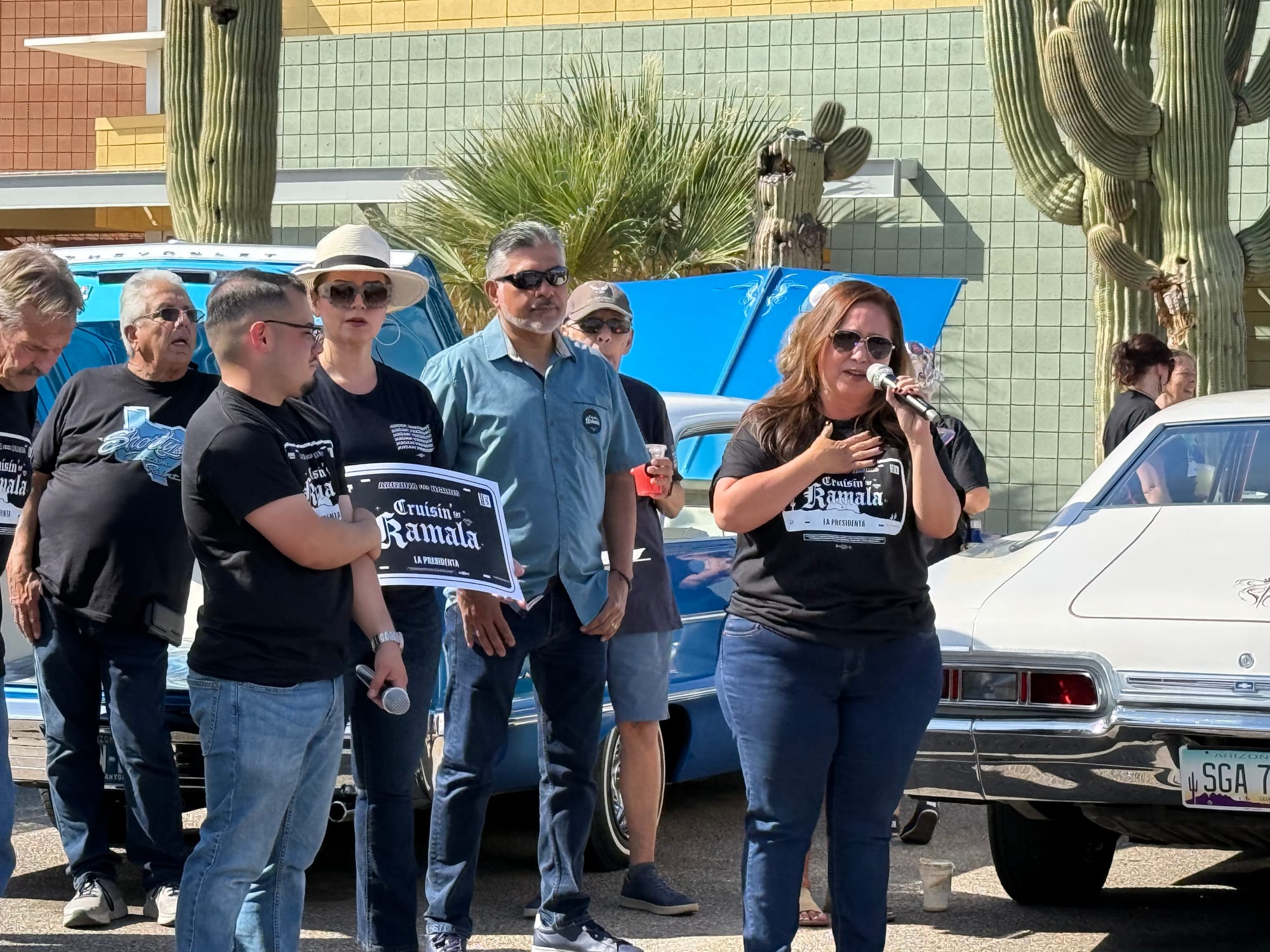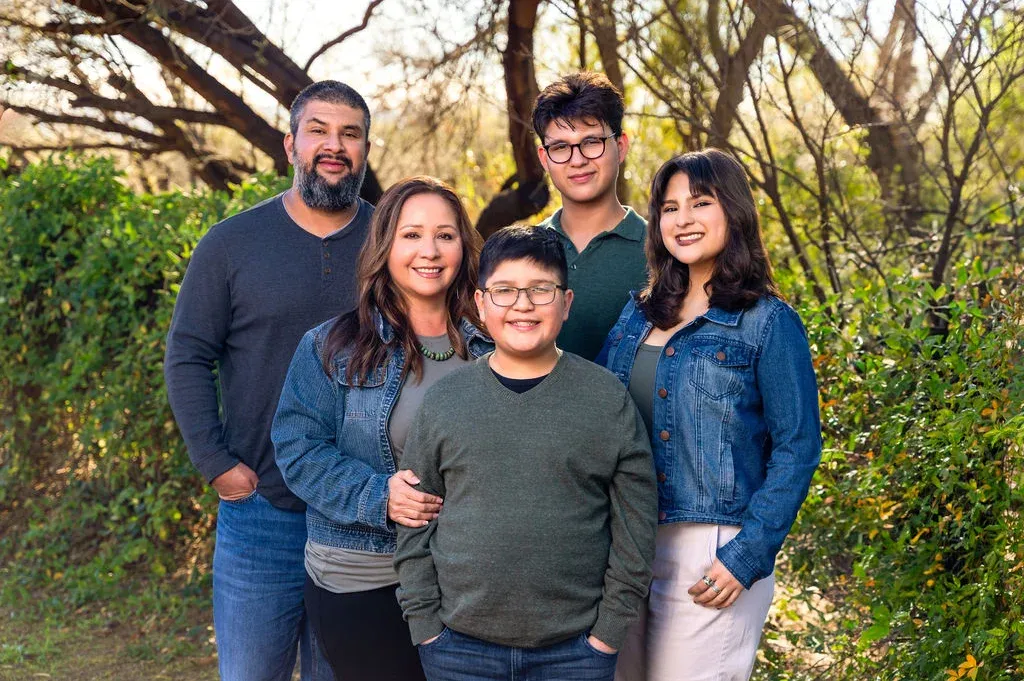Grijalva to prioritize education, transparency in second term
Adelita Grijalva, the daughter of longtime U.S. Congressman Raul Grijalva, was elected to the Board of Supervisors in 2020, breaking barriers as the first Latina elected to the position in Pima County.

Adelita Grijalva grew up immersed in Southern Arizona politics and spent two decades on the governing board of Southern Arizona's largest school district.
She’s hoping to channel that lifetime of experience into a second term as supervisor representing PIma County’s District 5.
Grijalva, the daughter of longtime U.S. Congressman Raul Grijalva, was elected to the Board of Supervisors in 2020, breaking barriers as the first Latina elected to the position in Pima County.
She currently serves as board chair and now that her first term is coming to an end, she says that she’s “just getting started.”
Grijalva is being challenged for the seat by independent Val Romero, who is serving in his first term on the Tucson Unified School District governing board. He was elected after Grijalva opted not to seek a sixth term.
In reflecting on her first term as supervisor, Grijalva told Tucson Spotlight that her biggest accomplishment is the $10 million into preschool scholarships and funding she championed for Pima County, saying that three years after her office started these efforts, more than 2,000 students have received a free or reduced preschool education.
She also points to the over 7,000 acres of desert, or open space, the board has helped preserve during her tenure. Her campaign website lists her support for the expansion of the Sonoran Desert Conservation plan, which protects historic and cultural lands, critical habitats and the desert environment.

Grijalva said she values transparency and makes sure to post highlight videos to her social media after every supervisors meeting. The videos run 8-12 minutes and provide her with a direct way to speak with her constituents.
“This is the first time that taxpayers are paying my salary through a government position so it's a priority of mine to make sure that people know what we’re doing,” she said.
Grijalva believes the way to address homelessness is by addressing housing affordability, creating programs and collaborating with city partners, the courts and law enforcement, saying that the county “pretending (they) can do it by themselves is just going to cause more frustration.”
Unlike her challenger, Grijalva doesn’t believe enforcement is an effective way to address homelessness. She says she wants to see more money and effort put into programs that will keep people out of jail and create a more robust transition center for people leaving jail.
“Trying to make sure that we have all of those services in place is really critically important because we can't arrest our way out of this problem,” she said. “How do we make sure that the people that really need the services get the services? And that those that are refusing services get a clear message that setting up or committing any crimes in our areas where businesses are, where our neighborhoods are, is not going to be tolerated?”
She said she has been working with the City of Tucson to clean up encampments, saying it’s important to protect the city’s open spaces for community members. But she quickly acknowledged that it’s a nuanced and complicated issue.
“Unfortunately, if we had answers to fix it immediately, it would have already been done,” she said.
She said her 20 years of experience at TUSD has helped her tremendously and she thinks serving on a volunteer board for a district like TUSD should be a prerequisite for running for paid political offices.
“Once you're in that position, you have to make some really tough decisions, and I had to make those,” she said. “And I think that that prepared me to be able to do the same at this level and in any other position I should ever have.”

Grijalva’s opponent challenged what he called her “lack of leadership” at TUSD when he spoke with Spotlight, saying that it led the school district into a deficit.
“It's really easy to point fingers and not have any direct votes and not have to put it into context,” she said, responding to Romero’s claims. “I can walk in and say, ‘Oh, this was a mess and it's not my fault, it's somebody else's fault.’ But really, how are you part of the solution to increase the investment is where I think the rubber meets the road.”
She points to a different reason the school is headed into a deficit: the continuous cuts by the state legislature to education funding.
Grijalva said when she was a student at TUSD, the district received $4,500 in state funding per student. Thirty years later, her three children in the same district each receive less funding from the state.
“You can only do so much with reduced income, reduced capital funding and reduced federal investment,” she said. “The needs continue to get greater because so many other social services are having to cut their budget so the requirement on our school districts continues to increase.”
She adds that Romero walked into a TUSD budget padded with lots of federal COVID relief funding and that the governing board has not had to make “a lot of hard decisions.”
In terms of her record with TUSD, Grijalva highlights historic investments in classroom spending, art and music, quality of extracurriculars and sports facilities, but notes that these decisions were made as a collective with the rest of the board and not just by her.
“I'm proud of my 20 years of service in Tucson Unified,” she said. “I still think that they can work together to really continue to shape the education and support the public education of my children that are still there.”
Susan Barnett is Deputy Editor of Tucson Spotlight and a graduate student at the University of Arizona. She previously worked for La Estrella de Tucson. Contact her at susan@tucsonspotlight.org.
Tucson Spotlight is a community-based newsroom that provides paid opportunities for students and rising journalists in Southern Arizona. Please support our work with a paid subscription.



